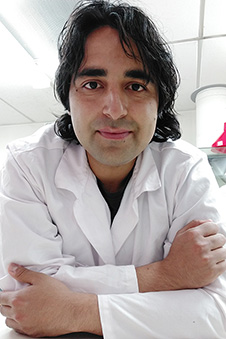 Sandesh Panthi
Sandesh Panthi
When we think of seizures, most of us bring the stereotypical imagery of uncontrollable shaking on the floor to mind. However, some children experience absence seizures, which are often mistaken for or brushed off as the child daydreaming, or simply not paying attention. These absence seizures cause children to lose awareness for short periods, up to 100 times a day, thus impacting their learning, social development, and increasing their risk of physical injury. Sandesh Panthi, a PhD student mentored by Associate Professor Beulah Leitch, is trying to understand which cells and parts of the brain are responsible for these seizures. He received the 2019 Roche Hanns Möhler Doctoral Scholarship.
Sandesh is studying a specific type of inhibitory brain cell, called the parvalbumin-expressing interneurons. These cells control the balance of 'on' and 'off' signals that specific brain regions receive. Previous studies suggested a link between a reduction in the 'off' signals and absence seizures. Since the 'off' signals are controlled by parvalbumin interneurons, Sandesh set out to manipulate their function and test this relationship.
Sandesh “feels very privileged to have been awarded the Roche Hanns Möhler Doctoral Scholarship”, as it provided the financial support and time to conduct a new set of experiments. Using cutting-edge tools, Sandesh activated the parvalbumin interneurons and substantially reduced absence seizures in a mouse model. This work has become a new chapter in Sandesh's thesis.
Sandesh's work brings us a better understanding of how absence seizures come about. One day, he hopes this work might lead to a treatment.